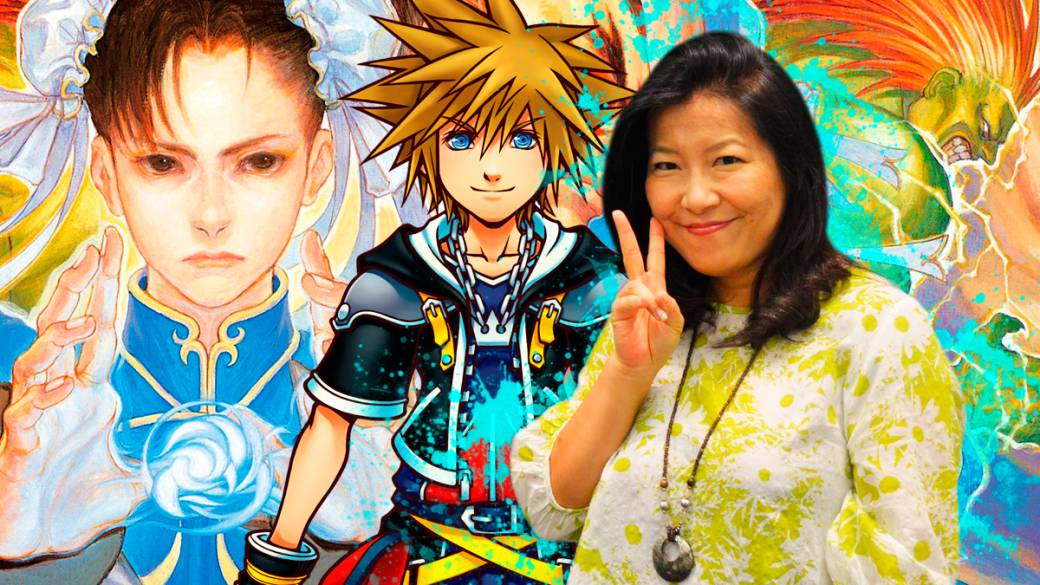
Destined to be a music teacher, she is now one of the most influential ladies in the industry thanks to works such as Street Fighter II and Kingdom Hearts.
There are video games in which the soundtrack is one more character. Unforgettable songs that continue to bristle our skin every time we press play and have inspired other artists to create their version. Others have become hymns of the community and, hearing their first chords, transport us to those titles that made them famous. An example is Street Fighter II, with themes dedicated to each of its fighters, thus complementing its personality. On the other hand, the delicate beauty of Kingdom Hearts themes have established itself as another pillar of the franchise. In common, they have the same composer: Yoko Shimomura, one of the pioneers of the videogame industry, recognition for which she will be awarded at the next Fun n’ Serious Festival. In his generation we find other ladies who broke through the social impositions of the moment: Carol Shaw, one of the first developers; Brenda Romero, design teacher; or Dona Bailey, creator of Centipede, one of Atari's greatest successes.
Yoko Shimomura left the path they had marked for her to enter a technological world that had just emerged, and in which she has been dreaming of the beauty of her compositions for more than 30 years. The pianist was born in 1967 in Hyogo Prefecture (Japan) and, since she has memory use, her great love is music. He started playing the piano at 4 or 5 years old and already showed an early creativity: “I don't remember when I composed my first song. Shortly after I started learning, I played random notes and imagined myself creating new themes ”(RocketBaby, 2003). Yoko, in that interview, said laughingly: "I still know how to play the first song I composed, but I don't represent it in public because it's so ridiculous."
First notes in an emerging industry
At 20, Shimomura graduated from the Osaka Music College and dreamed of a profession related to his passion, as he recalled in Women In Gaming – 100 Professionals of Play (Meagan Marie, 2018). Her destiny was to become a piano teacher, which guaranteed her stability and a good social position. However, a job offer crossed his path: Capcom was looking for new graduates and Yoko, who was fond of video games, did not hesitate to send his request. To the surprise of the pianist, she was hired, which was not well received in her closest circles: "My parents cried, my friends were worried and my teacher was stunned," says Shimomura at RocketBaby. Then, they did not know that the promising composer would become one of the greatest references in an industry that had just been born.
Thus, Yoko Shimomura went to work at Capcom in 1988, with no more training than classical music. “He accused a great lack of skills. It was a very hard time, ”confesses the pianist in Women In Gaming – 100 Professionals of Play. However, it eventually strengthened thanks to a training program at Capcom that included mentoring. In the team there were other composers, whose talent praises Shimomura herself in the book cited. He also points out how surprising it was to have a female presence, since "the composers of classical and pop music were almost all men then." However, Capcom valued talent over gender.
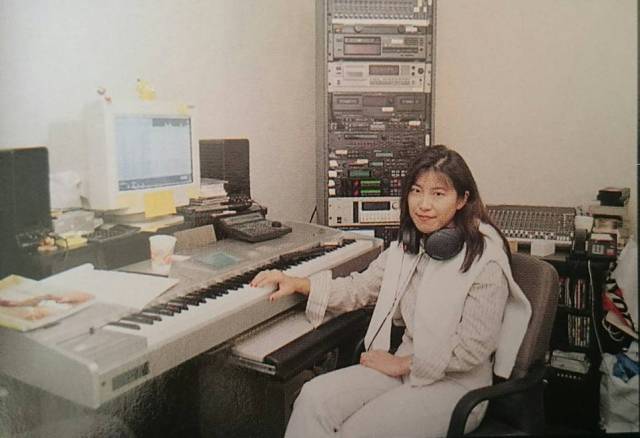 Yoko Shimomura, pictured in her studio in 1998.
Yoko Shimomura, pictured in her studio in 1998.
Yoko Shimomura's debut was in 1988 with Samurai Sword, where he dealt with music and sound effects. Later, he would collaborate in Final Fight (1989) and Adventures In The Magic Kingdom (1990), but the title with which the pianist would begin to win a name in the industry was Street Fighter II: The World Warrior (1991). The assignment was to create thematic songs for each fighter. In Diggin In the Carts (Red Bull Music Academy), Shimomura describes how the creative process went: "When we were talking about what kind of music I should compose, I saw scenarios from different countries and I said to myself:‘ India is not like that. " It was a vision very similar to that of foreigners who see Japan as geisha and kabuki. That distorted and mysterious vision seemed curious to me. Then we considered making ambient music that conveyed the sensation of each country. For example, for India I would not make Indian music, but a song that evoked how I imagined music in India. When I suggested that it would be weird to give that comic tone to songs related to different parts of the world, they told me that nothing was wrong. Then it occurred to me to make the songs faster and more desperate for when the player had a third of energy left and continued fighting. ”
In the same interview, Shimomura remembers how he composed Blanka's theme, pointed out by the media as one of the most popular. The pianist had hit the beat, but the melody was missing. On the train on the way to Capcom, I was distraught at the idea of not reaching the delivery date, and her eyes met a yellow folio that reminded her of the color associated with the Brazilian beast. "Then, Tararirarin came up in my head and I said: tengo I have it!" I spent the rest of the way humming tararirarin, tararirarin. ” For its part, Blanka's theme has a peculiarity that Shimomura points out in Diggin In The Carts: “The rhythm is in a greater tone, but the melody is in a minor tone. Basically you hear a minor flat and a becuadro at the same time. It is something that must be corrected, but I would change the song to complex. And that strange, broken feeling is the essence of the song itself. People then told me that the music was wrong, but if so many people tell me they love it now, then I don't think it was so bad. ” The success of the video game was resounding, and Shimomura herself told Kingdom Hearts Insider (2010) how excited she was to see children from other countries play Street Fighter II.
In Capcom, in addition, Yoko Shimomura was not only dedicated to creating music for video games. He also participated in Alph Lyla, the local developer group for which the pianist created more themes and with whom he gave concerts. However, Yoko could not devote much time to the band, as he tells in Spelmusik (interview of 2017), since they could only play once the day in Capcom was completed, after which he felt exhausted.
New melodies for the role
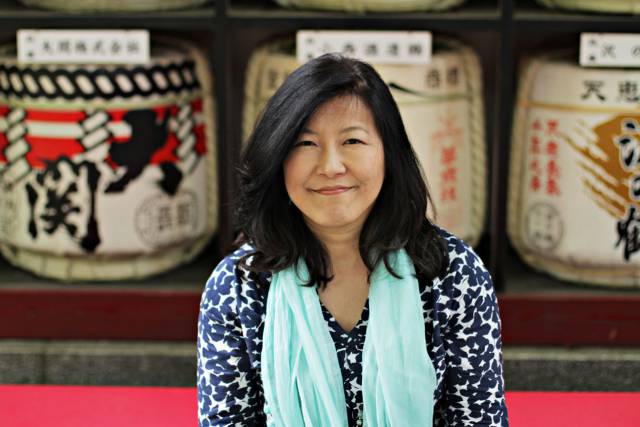 Portrait of Yoko Shimomura, by DITC (2014)
Portrait of Yoko Shimomura, by DITC (2014)
Despite the stress experienced during his time at Capcom, Shimomura highlights in Diggin In The Carts the harmonious environment of the sound department, led by a workspace where the entire team worked at the same desk that was big enough for everyone . However, Yoko had a dream to fulfill: “At first, I got into the industry because I wanted to compose for role-playing videogames, but when Capcom was introduced to the genre with Breath of Fire, they only put me in charge of a theme , so I sent my job application to Square. ”
In 1993, Yoko Shimomura began a new mission as an internal composer at Square Co., before it became SquareEnix. There, the composer would recreate themes inspired by her classic roots. His first project was Live A Live (1994), whose amalgam of genres demanded a generous musical variety in terms of setting: from Western spaghetti to space-opera, through medieval fantasy and post-apocalyptic manga. During this project, Shimomura specialized in 10 different musical genres, as Square Haven claimed in 2007. The Live A Live soundtrack was launched in 1994, and three of its themes would end up in the compilation of great hits Drammatica: The Very Best Of Yoko Shimomura
Shimomura was working simultaneously on Front Mission (1995) and Super Mario RPG (1996). In GamaSutra, the pianist narrated how she feared being devoured by stress by having two projects on the table at the same time: “I went to the Sakaguchi cubicle (vice president of Square at the time) to reject Front Mission. However, as soon as I started talking, I already knew what he was going to say and he interrupted me: ‘Shimomura, are you sure you want to say this in front of the president of the company?’ I turned and saw that Mizuno was right next to him. I was embarrassed and I muttered: "Sure, you can count on me." The composer, in the same interview, also stated that it was very difficult to deny Tetsuo Mizuno something because of her kindness. So Yoko and his partner Noriko Matsueda got down to work with Front Mission, whose result was more than satisfactory: "We were very motivated and we had a very passionate soundtrack."
Horror opera
In 1998, Yoko Shimomura took a step further with Parasite Eve (1998), which incorporated voices into the soundtrack, which was made possible by the technology presented by the first PlayStation. The pianist defined this project as “an experimental work” (VGMOnline, 2011), since she wanted to do something different: “Until now, I wanted my music to express things directly: the sad songs were very depressing, the bright ones were full of light; It was what I was best at, because I let my music reflect my mental state while composing it. This time, I decided to step back and hold back a little. I was looking for something more abstract, or without emotions, we could say. That way I could better reflect the atmosphere of the game. ” Parasite Eve displayed an unusual mix of opera, classical and electronic music, immortalized in an album that was released that same year. GameSpot was not convinced by this strange combination and criticized how “forgettable” techno is. Instead, other media specialized in music praised the result, such as SquareEnix Music: “Theoretical experimentation is not enough; the composition requires passion and exuberance, and Shimomura fully meets ”.
After Parasite Eve, Shimomura embarked on a radically different project to terror: Legend Of Mana (1999). In Spelmusik, Shimomura claimed to have enjoyed a lot while composing his soundtrack: "One of the things that surprised me most was when the director asked me for a metal style for a battle issue against a boss." For this occasion, Shimomura had voices and lyrics in Swedish: “When I saw the art of Legend of Mana, Scandinavian landscapes came to mind, despite not having visited any of those countries. I didn't want to use a language as common as English. ” Singer Annika Ljungberg (formerly in Rednex) was the voice that conquered Yoko for her work.
Captivating hearts
Yoko Shimomura had already become a renowned composer within the industry, and in 2002 came the adventure that would consolidate her reputation: Kingdom Hearts. This was an even greater challenge for the pianist: he had to combine in his music the Disney cinema, the Final Fantasy universe and give him a personality of his own. In Square Haven, the composer related how she got the right notes: “Being an action game, I wanted to compose songs that put the player in tune with the music during the game. So I played again and again, and it recorded me to analyze the sensations as a spectator. He took the scripts and illustrations as a reference and outlined ideas. Thus, through trial and error, the songs came to me. ”
In the favorable criticisms of Kingdom Hearts there was no lack of flattering mention of Shimomura's work. IGN highlighted how the pianist maintained "a common thread within the soundtrack, while each area maintained its own atmosphere." Soundtrack Central, in the official album review, defined Shimomura's compositions as "sophisticated" because of the purity of their melodic power. Forbes included Kingdom Hearts in its list The 12 best video game soundtracks of all time.
A music teacher
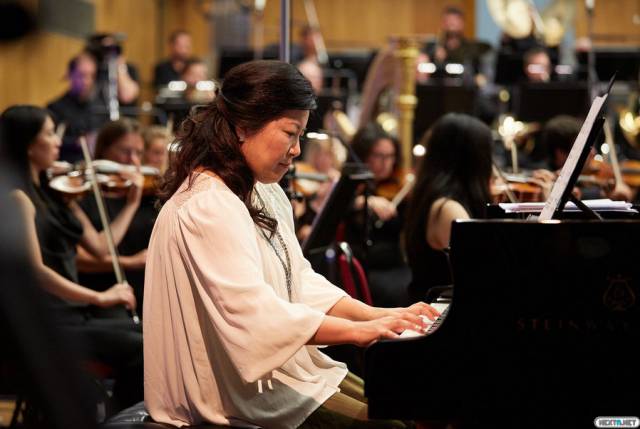 Yoko Shimomura during the concert with the London Philharmonic Orchestra (2016)
Yoko Shimomura during the concert with the London Philharmonic Orchestra (2016)
After the first Kingdom Hearts, Yoko Shimomura began a new path as a freelance composer, although she would remain creating unforgettable music for the iconic saga. Dearly Beloved (Kingdom Hearts II) was named by IGN in 2007 as one of the best songs for an RPG of all time. In Women In Gaming – 100 Professionals of Play, the pianist cites this theme as one of her favorites.
In his new independent stage, Shimomura told Spelmusik his greatest advantage: he always had projects at hand, and in turn he could devote time to his family. He also founded Midiplex, his own music producer through which he continued to create music for titles such as Xenoblade Chronicles, Mario & Luigi: Superstar Saga, The 3rd Birthday and, more recently, Final Fantasy XV. In 2008, he released his own album to celebrate his 20 years in the video industry: Drammatica: The Very Best Of Yoko Shimomura, which was performed in the Stockholm Concert Hall during the Symphonic Shades, a tribute to the music of the video game. “20 years ago, I did not imagine that I would go to Stockholm to live a concert dedicated to my music,” says the pianist in Spelmusik.
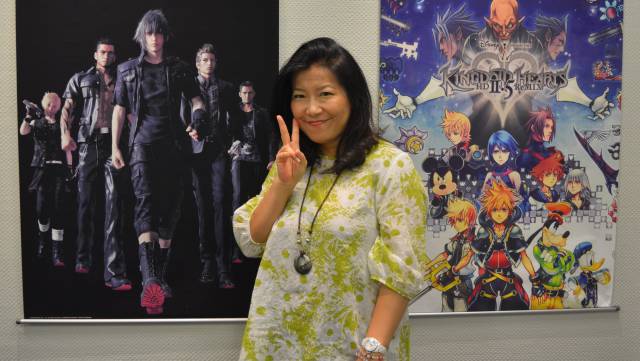 Yoko Shimomura poses with the posters of Kingdom Hearts and Final Fantasy XV, two of his most famous works.
Yoko Shimomura poses with the posters of Kingdom Hearts and Final Fantasy XV, two of his most famous works.
For the 25th anniversary of Yoko Shimomura's work, she performed in the Tokyo FM concert hall, which marked the beginning of a tour that would take her to Paris and Mexico City. In 2016, the pianist would represent the themes of Final Fantasy XV along with the London Philharmonic Orchestra at Abbey Road Studios.
Appreciation towards Yoko Shimomura has not only manifested in professional circles. The community loves their music and the pianist loves to meet their fans after the concerts: “I love hearing comments like‘ I have listened to your music and that melancholy has saved my life ’or‘ you have inspired me to become a composer ’”.
Maybe Yoko Shimomura's destiny was to become a music teacher. In a way, this has been the case, because of how the pianist has become a reference for amateurs and professionals such as Video Games Live, who make versions of their songs. His sensitivity and exquisiteness gave him a position in the Hall of Fame of Classic.FM, one of the most prestigious lists of classical music, where he has remained until last 2018. “Being in the same classification as Tchaikovsky and Beethoven is everything an honor, ”says Shimomura in Women In Gaming – 100 Professionals of Play.
The first chords of Yoko Shimomura were not easy. He started in an industry as emerging as it was demanding, and sometimes he felt that his projects were large. However, throughout these 30 years his music has been taking on new nuances while overcoming new challenges. Now, beyond teaching piano, his music has become one of the most influential figures in the video industry.
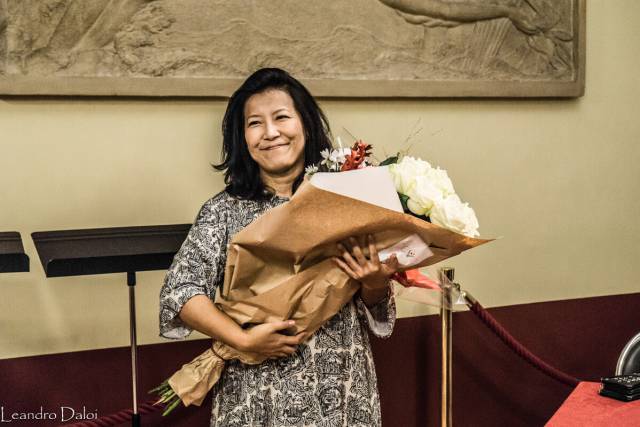 Yoko Shimomura during the Melidiosa concert in Paris.
Yoko Shimomura during the Melidiosa concert in Paris.

